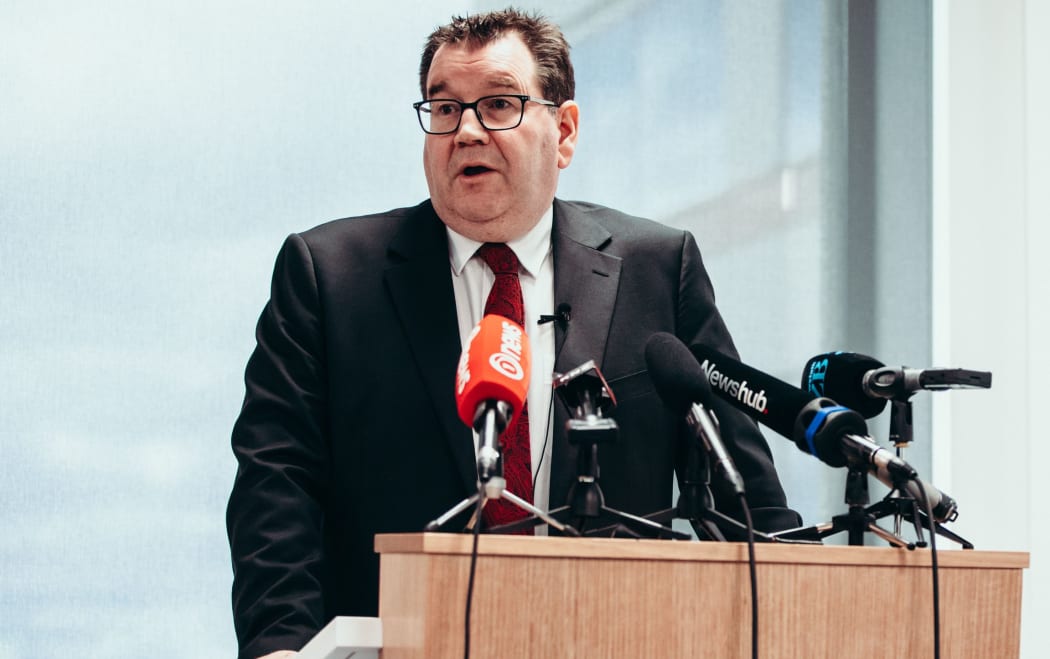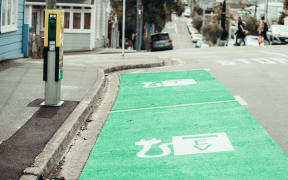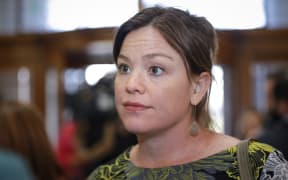Newly-released emails reveal Finance Minister Grant Robertson's staff tried to keep secret Treasury's criticism of a government proposal, but were unsuccessful.

Finance Minister Grant Robertson. Photo: RNZ /Dom Thomas
Earlier this year, RNZ revealed Treasury had rubbished the so-called "feebate" scheme aimed at promoting electric cars, warning it would have virtually no effect on carbon emissions over two decades.
That advice was obtained by RNZ under the Official Information Act, but fresh correspondence reveals Mr Robertson's office had tried to stop Treasury from releasing it.
The documents show Treasury initially intended to release its advice in full with just the names and contact details of certain staff redacted.
But officials in the minister's office were quick to try reverse that decision, first suggesting it be withheld because the advice related to a draft Cabinet paper.
Treasury staff pushed back, saying the draft was "near-final", so Ombudsman guidance indicated it must be made public.
"We therefore believe the release should remain as it is," the email said.
The minister's economic advisor, Alastair Cameron, then tried a different tack, asking Treasury to consider withholding its advice on the grounds of confidentiality.
"As you know, the Govt is yet to make final decisions on the clean car discount and fuel standards, so there may be a case for withholding Treasury's advice until the decisions are made."
But, after consulting their legal team, Treasury staff again resisted, saying there was "public interest" in the information being made available to inform debate and feedback.
They also noted Treasury's position had previously been stated, albeit briefly, in an-already-public Cabinet paper.
"In order to withhold, we must be able to demonstrate the harm that would occur were this information to be released before final decisions," Treasury said.
"We have not been able to identify any harm, even in discussion with the [Minister's] Office."
The intervention, however, did result in some sections of the advice being redacted, notably one paragraph which warned the proposals could cause a "more costly transition" to a low-emissions economy.
Opposition unimpressed
The Opposition unleashed a barrage of attacks on the feebate scheme after its announcement, labelling it a "car tax" which would "penalise" New Zealanders.
National Party transport spokesperson Chris Bishop said it was "frankly outrageous" the Minister's office had tried to hide important details about the proposal.
"This government said they'd be the most open and transparent in New Zealand history," he said. "The truth is the exact opposite."
In a statement, Mr Robertson defended his officials' behaviour, saying their approach was "common practice" at that stage of the policy-making process.
"My office queried the need to release the information as some of it was still under active consideration and final decisions were yet to be taken.
"The Treasury considered the matter carefully and advised that the material was already in the public domain so it should be released."
The government's proposed feebate scheme, unveiled in July, would slap an import fee on heavy-polluting vehicles and use the revenue to subsidise electric, hybrid and low-emission cars.
The plan would run alongside new fuel efficiency standards which would require importers to reduce the average emissions of the vehicles they bring in.
A Treasury report advised against the policy, saying the feebate scheme would reduce emissions by just 1.6 million tonnes over 20 years.
For comparison, New Zealand's gross emissions are estimated at 80.9 million tonnes per year.





